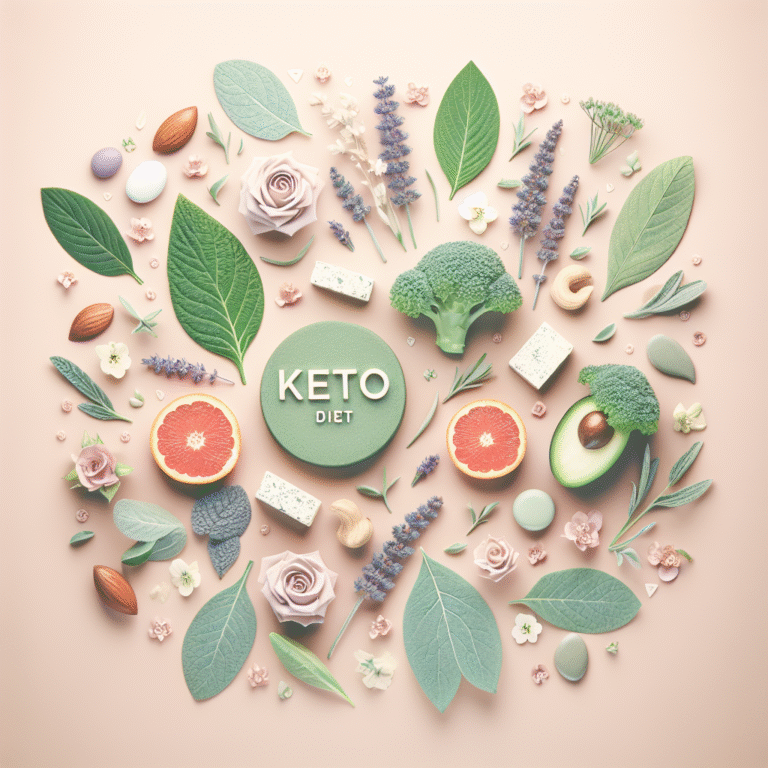Introduction to Avocado Benefits
Avocados have long held the reputation of being a superfood, often making their way into the diets of health enthusiasts and culinary adventurers alike. With their rich, creamy texture and versatile use in various dishes, they are more than just a trendy toast topper. But what happens when you decide to incorporate avocado into your daily diet? This article explores the profound impacts of eating avocado every day, drawing from personal experiences and scientific insights.
When I first decided to add avocado to my daily meals, it was out of curiosity rather than conviction. However, the changes I observed in my health and well-being were significant enough to share. This journey has transformed not only my perception of this fruit but also my overall dietary habits. From improved skin health to enhanced nutrient absorption, the benefits of daily avocado consumption are both tangible and scientifically backed.

Nutritional Powerhouse
Avocados are often lauded for their dense nutrient profile, making them an excellent addition to any diet. This section delves into the nutritional components that make avocados so beneficial.
Rich in Healthy Fats
Avocados are a primary source of monounsaturated fats, particularly oleic acid, which is the same type of heart-healthy fat found in olive oil. These fats are known to reduce inflammation and have a positive effect on genes linked to cancer. Consuming avocados has been shown to lower LDL cholesterol levels, which is often referred to as “bad” cholesterol, while increasing HDL cholesterol, the “good” cholesterol. This dual action supports cardiovascular health and may lower the risk of heart disease, making avocados a heart-friendly choice.
Packed with Vitamins and Minerals
Beyond healthy fats, avocados are loaded with vitamins and minerals. They provide a substantial amount of Vitamin K, Vitamin E, Vitamin C, and several B vitamins. These nutrients contribute to various bodily functions, including blood clotting, antioxidant protection, and energy production. Avocados are also rich in potassium, containing more of this vital mineral than bananas, which is known to help regulate blood pressure. Potassium plays a crucial role in maintaining fluid balance, nerve signals, and muscle contractions, all of which are essential for overall health.
Fiber and Antioxidants
Avocados are high in fiber, offering about 7 grams per half fruit. This fiber content not only aids in digestion but also helps maintain a feeling of fullness, which can support weight management. Additionally, avocados contain powerful antioxidants like lutein and zeaxanthin, which are crucial for eye health. These antioxidants help protect the eyes from harmful light waves such as ultraviolet rays, potentially reducing the risk of cataracts and age-related macular degeneration.
Personal Health Transformations
Incorporating avocados into my daily diet led to noticeable changes in my health, some of which were rather surprising.
Improved Skin Health
One of the first changes I noticed was in my skin. The healthy fats and vitamins in avocados contribute to better skin hydration and elasticity. Over time, I found my skin looked more radiant and less prone to dryness. The antioxidant properties also played a role in reducing signs of premature aging. As an anecdote, I recall a colleague commenting on my “glow” during a video call, unaware that my newfound radiance was thanks to my diet change.

Enhanced Digestive Health
The high fiber content in avocados improved my digestive health significantly. Regular consumption helped regulate bowel movements and reduced bloating. This is likely due to the soluble fiber enhancing the growth of beneficial gut bacteria, contributing to a healthier digestive system overall. I used to struggle with irregular digestion, but now, my gut feels more balanced and efficient.
Sustained Energy Levels
I also experienced a positive change in my energy levels. The nutrient-dense nature of avocados provided a steady release of energy throughout the day, unlike the quick spikes and drops associated with high-sugar foods. This sustained energy helped improve my productivity and focus. For example, I no longer felt the mid-afternoon slump that often led me to the vending machine for a sugary pick-me-up.
Comparing Avocado to Other Foods
To understand the unique benefits of avocados, it’s helpful to compare them to other common foods in our diets. The following table highlights how avocados stand out.
| Nutrient | Avocado (100g) | Banana (100g) | Almonds (100g) |
|---|---|---|---|
| Calories | 160 | 89 | 579 |
| Total Fat | 15g | 0.3g | 50g |
| Monounsaturated Fat | 10g | 0g | 32g |
| Potassium | 485mg | 358mg | 705mg |
| Fiber | 7g | 2.6g | 12.5g |
| Vitamin C | 10mg | 8.7mg | 0mg |
From this comparison, it’s clear that while other foods like bananas and almonds offer unique benefits, avocados provide a balanced profile of healthy fats, vitamins, and fiber, making them an exceptional choice for overall health improvement. While almonds might offer higher levels of fats and fiber, they also come with significantly higher calories, which may not be suitable for everyone. Bananas, on the other hand, are excellent for quick energy but lack the healthy fats that avocados offer.
Practical Tips for Daily Consumption
Integrating avocados into your daily diet can be easy and delicious with these practical tips.
- Breakfast Boost: Add sliced avocado to your morning toast or blend it into a smoothie for a creamy texture and nutrient boost. Pair it with eggs on whole-grain bread for a balanced meal that keeps you full longer.
- Salad Addition: Enhance your salads by adding diced avocado. It pairs well with leafy greens, tomatoes, and proteins like chicken or tofu. For a Mediterranean twist, toss it with quinoa, olives, and feta.
- Healthy Substitute: Use mashed avocado as a substitute for butter or mayonnaise in sandwiches and wraps. It provides creaminess without the saturated fats.
- Simple Snack: Enjoy avocado with a sprinkle of salt and pepper or a dash of lemon juice for a simple, satisfying snack. Add chili flakes for a spicy kick.
Addressing Common Concerns
Despite their benefits, some people might have reservations about eating avocados daily. Here are common concerns addressed:
- Caloric Content: While avocados are calorie-dense, they are also nutrient-rich, making them a healthy choice if consumed in moderation. Balancing avocado intake with other low-calorie fruits and vegetables can help manage calorie consumption.
- Allergies: Some individuals may have an avocado allergy or sensitivity. It’s essential to monitor reactions and consult a healthcare professional if necessary. Symptoms can include nausea, vomiting, or an itchy throat.
- Cost and Availability: Avocados can be pricey and may not always be available in all regions. Consider looking for sales or exploring frozen avocado options as a cost-effective alternative. Joining a local co-op or farmers’ market can also provide fresher and potentially cheaper options.
FAQ Section
Is it healthy to eat avocado every day?
Yes, consuming avocado daily can be healthy due to its rich nutrient content, including healthy fats, fiber, and a variety of vitamins and minerals. However, moderation is key to managing calorie intake. It’s advisable to consume half an avocado per day, depending on your dietary needs.
Can avocados help with weight loss?
Avocados can aid in weight management due to their fiber content, which promotes satiety. Including avocados in a balanced diet may help you feel fuller for longer, potentially reducing overall calorie intake. It’s important to complement avocado consumption with physical activity and a varied diet for optimal results.
How can I prevent avocados from browning?
To prevent browning, store the avocado with the pit inside and sprinkle lemon or lime juice on the exposed flesh. Storing it in an airtight container can also help slow the browning process. Using a specially designed avocado saver can also extend its freshness.
Are avocados safe for everyone?

Most people can safely enjoy avocados, but those with allergies or certain conditions like kidney issues should consult a healthcare provider. Avocados are high in potassium, which may need to be monitored in some individuals. Always consider your health conditions and dietary restrictions when incorporating new foods.
Can I eat avocados if I have a latex allergy?
Some people with latex allergies may react to avocados due to cross-reactivity. It’s advisable to proceed with caution and consult with a healthcare professional if you have concerns. Testing with a small amount first can help determine any potential reactions.
Conclusion
Eating avocado every day has truly transformed my diet and health, offering a multitude of benefits from improved skin health to enhanced digestive function. While incorporating this nutrient-dense fruit into your daily diet may require some creativity and adjustment, the health gains are well worth the effort. Whether you are looking to boost your nutrient intake, maintain energy levels, or simply enjoy a delicious addition to your meals, avocados offer a versatile and healthful option. Their ability to blend seamlessly into both savory and sweet dishes makes them a dietary staple worth embracing.
Ready to Transform Your Health?
🥑 Download our FREE Complete Keto Diet Plan and start your journey to better health today!
[convertkit form=7803861]
—
Disclaimer: This content is for informational purposes only and does not constitute medical advice. Always consult a qualified healthcare professional before making changes to your health regimen.





